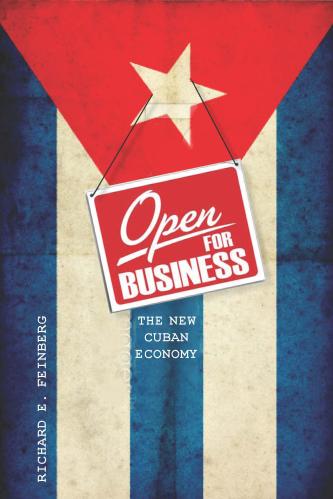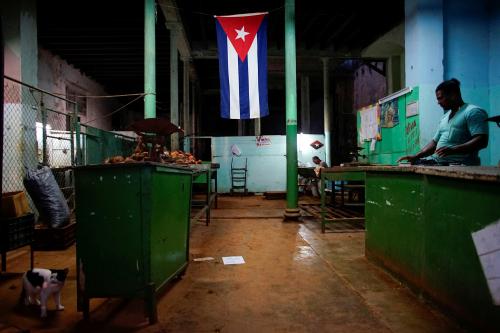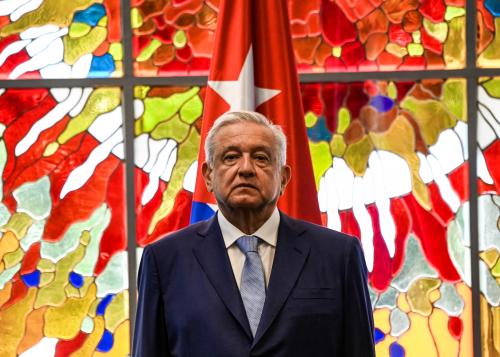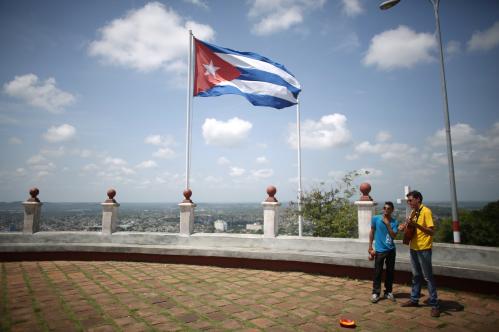In a leap backwards, the Cuban government has published a massive compendium of tough new regulations governing the island’s struggling private enterprises. The new regulations—the first major policy pronouncement during the administration of President Miguel Díaz-Canel—appear more focused on controlling and restricting the emerging private sector than on stimulating investment and job creation, more concerned with capping wealth accumulation than in poverty alleviation.
Many small businesses that cater to foreign visitors are already suffering from Trump-era restrictions and travel warnings that have decimated the U.S. tourist trade in Havana. But the new regulations are more a product of domestic Cuban politics than foreign pressures.
On a positive note, the Cuban government promises to renew the granting of licenses for many categories of private businesses by year-end, repealing the extended suspension announced last summer. But the new regulations greatly empower government rule-makers and intrusive inspectors, casting a gray cloud over the island’s business climate. Many existing businesses are likely to retrench if not close altogether.
The private sector grew dramatically in recent years, to include nearly 600,000 owners and employees by official figures, with many more enterprising Cubans working informally; in contrast, the state sector stagnated and further decapitalized. Indeed, many thriving private businesses began to compete successfully against state entities, notably in restaurants, bars and night clubs, guest houses, construction, and transportation. The healthy wages paid by profitable private firms often eclipsed the meager salaries paid to disgruntled government officials and factory workers.
The extensive, highly detailed regulations, which go into effect in December, read like “the revenge of the jealous bureaucrat.” Drawing on a multitude of ministries and operating at all levels—national, provincial, and municipal—interagency committees will now be empowered to authorize, inspect, and regularly report upon private businesses under their jurisdictions. The regulations are replete with astoundingly specific performance requirements and innumerable legal breaches that seem crafted to allow government officials wide discrimination to impose heavy fines (or extort bribes), suspend licenses, and even seize properties.
To cite but a few such regulations: Private restaurants and guest houses must cook food at a minimum of 70 degrees Celsius for the time required for each food; day care centers must allocate at least two square meters per child, have no more than six children per attendant, and be outfitted with pristine bathroom facilities described in exquisite detail (private schools and academies are strictly prohibited); and private taxi drivers must document that they are purchasing fuel at government gas stations, rather than buying on the black market. Further, local officials can deny new licenses based on “previous analyses,” even if the proposed business plan meets all the other specifications, and can fix prices “when conditions warrant.”
The regulations could help shield state enterprises from unwanted private competition. The very ministries that stand to lose market shares are in charge of approving licenses in their sector. For example, the ministry of tourism has the lead in judging licenses for private guest houses. Appeals are possible, but to administrative authorities, not to judicial courts.
Government agencies are also seeking to reassert control over the island’s vibrant artistic communities. The regulations prohibit artists from contracting directly with private restaurants and bars; rather they must be represented by public-sector entities that charge commissions up to 24 percent of revenues. Moreover, performers must not use “sexist, vulgar or obscene language,” which if enforced could imply the banning of popular hip-hop and reggaeton songs and videos.
Perhaps most telling are the restrictive rules squarely aimed at inhibiting private capital accumulation. In a sharp turn from past practice, Cubans will now only be allowed one license for one business, effectively outlawing franchising and diversification. Capacity at restaurants and bars is capped at 50 guests. Most biting, the new regulations establish an upward-sloping wage scale (whereby wages rise as more workers are hired); hiring more than 20 workers becomes prohibitively expensive (six times the average wage). Unlike in the past, employers will now have to pay taxes on the first five workers hired as well.
Many private businesses must also record their transactions (revenues and expenditures) in an account at a government financial institution and keep three months of prospective taxes on deposit. Intended to reduce underreporting of income, this measure will significantly raise the effective rates of taxation. Investors must also explain their sources of funds. In a country where political authority is unchecked, these financial impositions alone will discourage many potential entrepreneurs.
The Cuban authorities have repeatedly asserted their interest in attracting foreign investment, to compensate for weak domestic savings. However, foreign investors are likely to view these new regulations, even though they apply to domestically-owned firms, as indicative of an official wariness if not hostility toward private enterprise in general. Risk-averse foreign investors will also note that the Cuban government is quite capable of precipitously altering the rules of the game.
The new regulations are the first major policy initiative promulgated during the administration of President Miguel Díaz-Canel. Many of the resolutions were approved by the Council of State under Raúl Castro, prior to Díaz-Canel’s inauguration in April, but nevertheless were issued during his young tenure. Not a good sign for those hoping that Díaz-Canel, 58 years old and ostensibly representing a younger generation, might quickly place his own imprimatur over the extensive state apparatus.
The new regulations make one thing abundantly clear: The Cuban government, state-owned enterprises and the ruling Cuban Communist Party do not want to risk major competition to their own interests—economic, commercial, and political—from a potentially capital-rich, diversified emerging private sector. Apparently, perceived interests in security and stability have overruled Cuba’s own declared economic development goals.
The Brookings Institution is committed to quality, independence, and impact.
We are supported by a diverse array of funders. In line with our values and policies, each Brookings publication represents the sole views of its author(s).







Commentary
Cuba moves backwards: New regulations likely to impede private sector growth
July 13, 2018